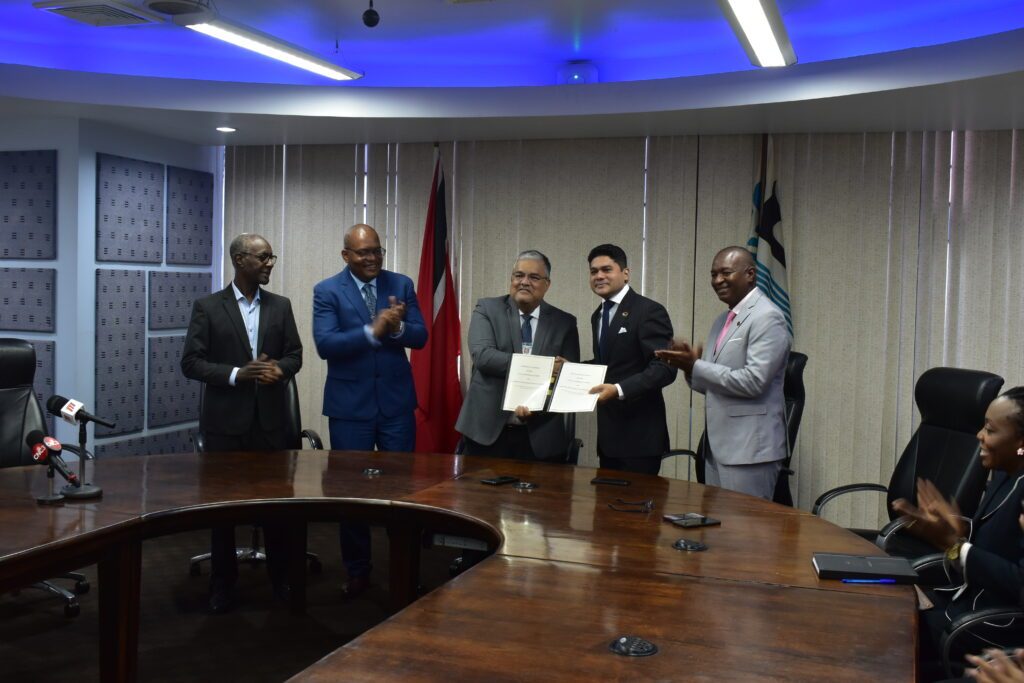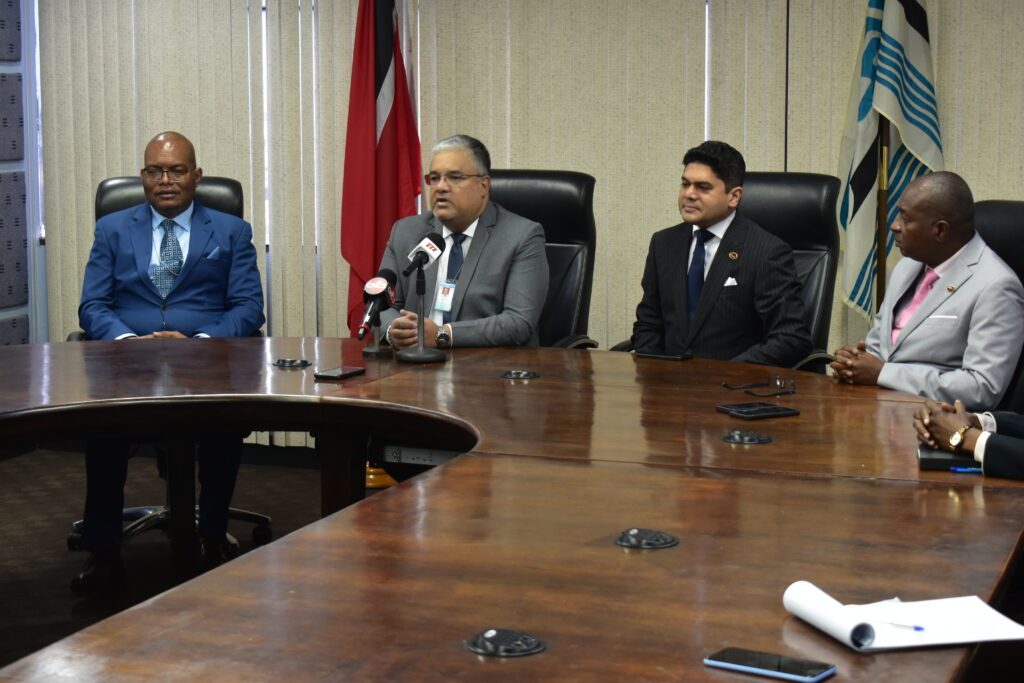Goodbye, potholes? WASA, Lake Asphalt to restore roads

The Water and Sewerage Authority (WASA) pledges to revamp its leak repair programme without causing road damage, as it collaborates with Lake Asphalt (LATT).
To this end, a memorandum of agreement (MOA) was signed on April 16 at WASA's headquarters in St Joseph.
The agreement, hailed as a groundbreaking step towards alleviating past shortcomings of WASA's leak repair programme, eliminates the outdated use of excavated material and includes a sizable road repair initiative, initially targeting 9,000 projects.
It also includes a training programme for employees and contractors to ensure high work standards.
Chairmen of both bodies, Ravindra Nanga of WASA and Neil Mohammed of LATT, expressed optimism over the collaboration.
“I believe WASA is specialised in bringing water to the nation and Lake Asphalt is specialised, not only in road building but also in road repair. This is an opportunity where both could come together and we can bring relief together,” Mohammed said.
“Once we embark on our road restoration programme, we are hopeful we will bring much needed relief to the public,” Nanga added.
Under the agreement, LATT will supply the materials for the repairs.
“Our materials from Lake Asphalt is applied on major runways and bridges all over the world, from JFK (airport), New York to the longest bridge in the world in China, and we are happy here today to bring those resources to provide relief to WASA and by extension the population of Trinidad and Tobago,” Mohammed said.
Addressing long-standing criticisms, Nanga acknowledged the organisation's past shortcomings.
“I know the members of the public say WASA means 'Workers Against Smooth Asphalt,' but that is certainly not our intention.”
In an interview with Newsday, when asked why an initiative such as this comes this late, Nanga explained the issue was two-fold: a cyclical issue he dubbed a “chicken-and-egg situation”' and material shortages.

“When the Ministry of Works and Transport (MOWT) paves the road, WASA kills it. Due to the aging infrastructure of WASA, the paving process can damage pipelines, requiring additional repairs and compromising the newly laid road surface.
"On the flip side, WASA's outdated methods, such as using excavated material, lead to inadequate compaction during pipe repairs, resulting in uneven roads."
To address these issues, Nanga said WASA is working closely with MOWT to streamline efforts and minimise disruptions to road infrastructure.
However, material shortages have historically slowed progress, owing to the high cost of running batching plants, and competing with MOWT for asphalt resources, Nanga added.
“We are not the only entity involved in road-paving; our projects in this are on a smaller scale. Larger pavers handle larger-scale construction and resurfacing projects, resulting in an imbalance in demand. As a result, we frequently find ourselves at a disadvantage, especially when shortages occur, reducing our efficiency."
Nanga said WASA was committed to a consumer-centric approach, asking for patience during the transition period.


Comments
"Goodbye, potholes? WASA, Lake Asphalt to restore roads"